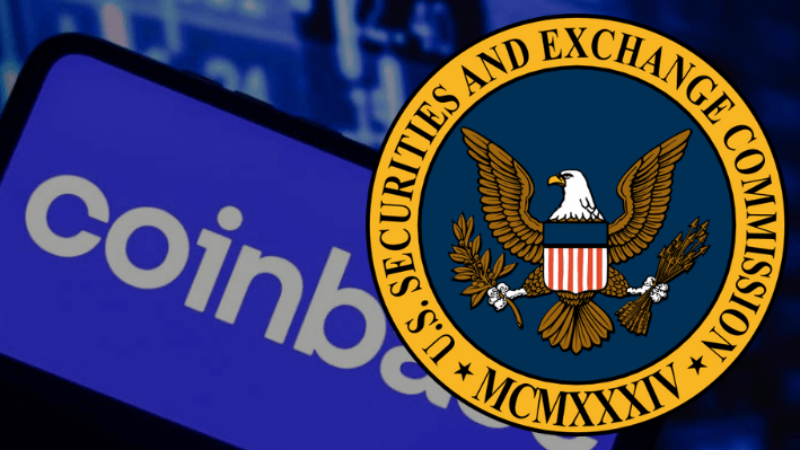US SEC v Coinbase lawsuit pauses unexpectedly as agency requests discovery deadline extension until February, post-elections.

The U.S. Securities and Exchange Commission (SEC) v. Coinbase lawsuit has seen an unexpected delay, as the SEC requested additional time for the discovery process.
The agency is asking the court to extend the deadline for completing fact discovery to February 2025, after the U.S. presidential elections.
US SEC Seeks Discovery Delay in Coinbase Case
In a letter to Judge Katherine Failla, the SEC requested a four-month extension to complete fact discovery, moving the deadline from October 18, 2024, to February 18, 2025. The SEC has also filed a Revised Case Management Plan to support this request.
According to the SEC, Coinbase Inc. and Coinbase Global Inc. have agreed to the proposed extension.
The agency cited the need to review hundreds of thousands of documents, including 133,582 unique files, as part of the extensive discovery requirements.

The extension, the SEC stated, would provide sufficient time to comply with the court’s order.
This marks the first request for a discovery deadline extension by any party in the case. The timing of the delay, falling after the 2024 U.S. elections, has sparked speculation.
Coinbase’s CLO Discusses Progress on Crypto Regulations
Meanwhile, Coinbase’s Chief Legal Officer, Paul Grewal, provided updates on the company’s regulatory efforts.
He mentioned progress on their Freedom of Information Act (FOIA) lawsuit against the FDIC, aimed at uncovering “pause letters” sent to financial institutions that allegedly debanked crypto firms. The court has ordered the release of a FOIA privilege log, known as a “Vaughn Index.”
Grewal and attorney James Murphy, known as “MetaLawMan,” agreed that applying more pressure could expose more details regarding “Operation Choke Point 2.0” by regulators.
The SEC has faced multiple challenges, including criticism over its use of “crypto asset securities” terminology, ongoing investigations into SEC Chair Gary Gensler, and a legal defeat in the Ripple case.
Political Divide on Crypto Legislation
Democratic leaders have expressed opposition to crypto-related legislation, describing bipartisan efforts like the Financial Innovation and Technology (FIT) Act and the rollback of SAB 121 accounting rules as “harmful” and the product of “extreme MAGA Republicans.”
However, Paul Grewal suggested that “MAGA” or simply a lawmaker fulfilling his duty is the real driver behind such actions.
Republican Representative Richie Torres also weighed in, questioning whether Ether should be considered a security, given the decentralized nature of the crypto industry, and advocating for distinct regulatory measures.
